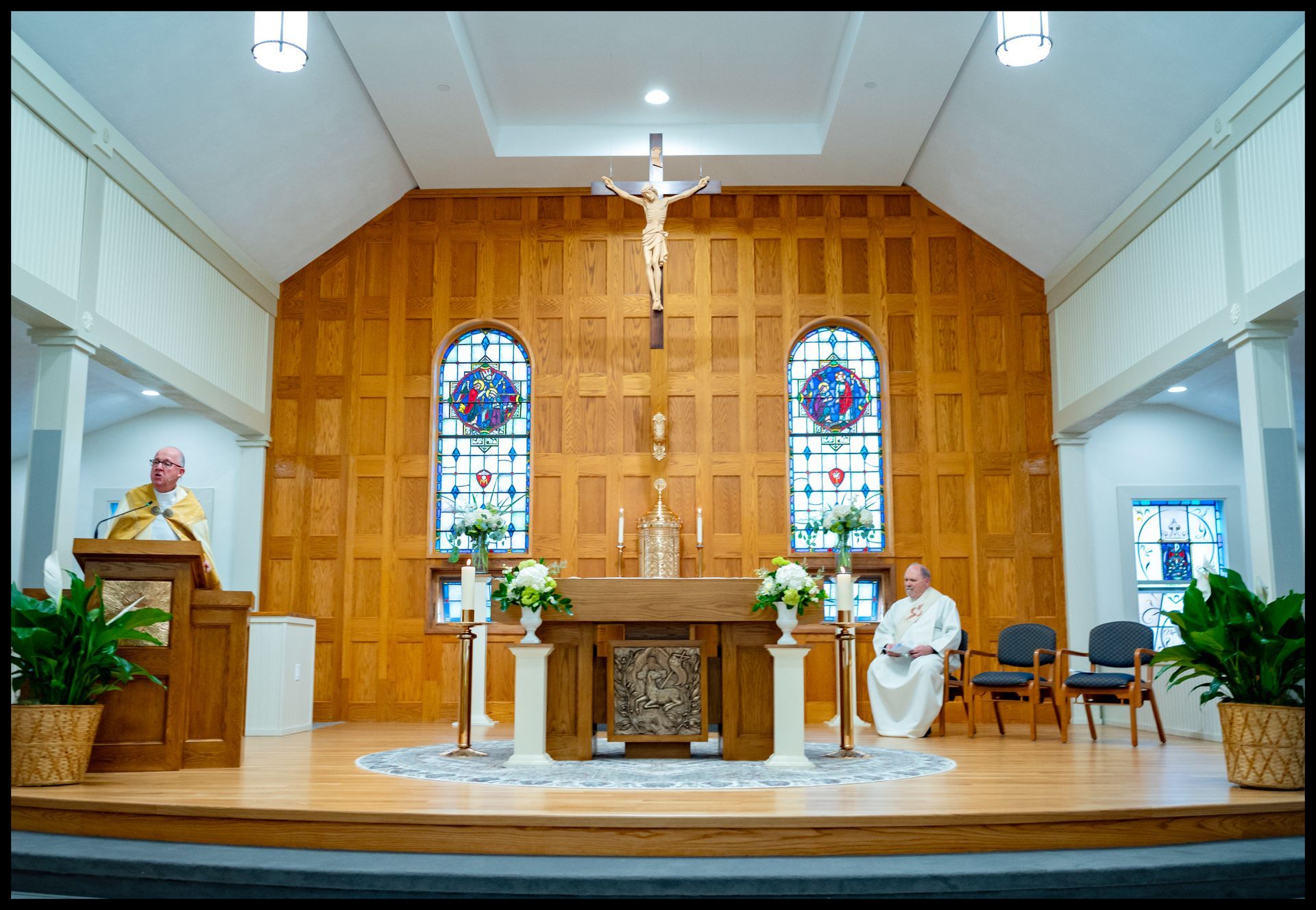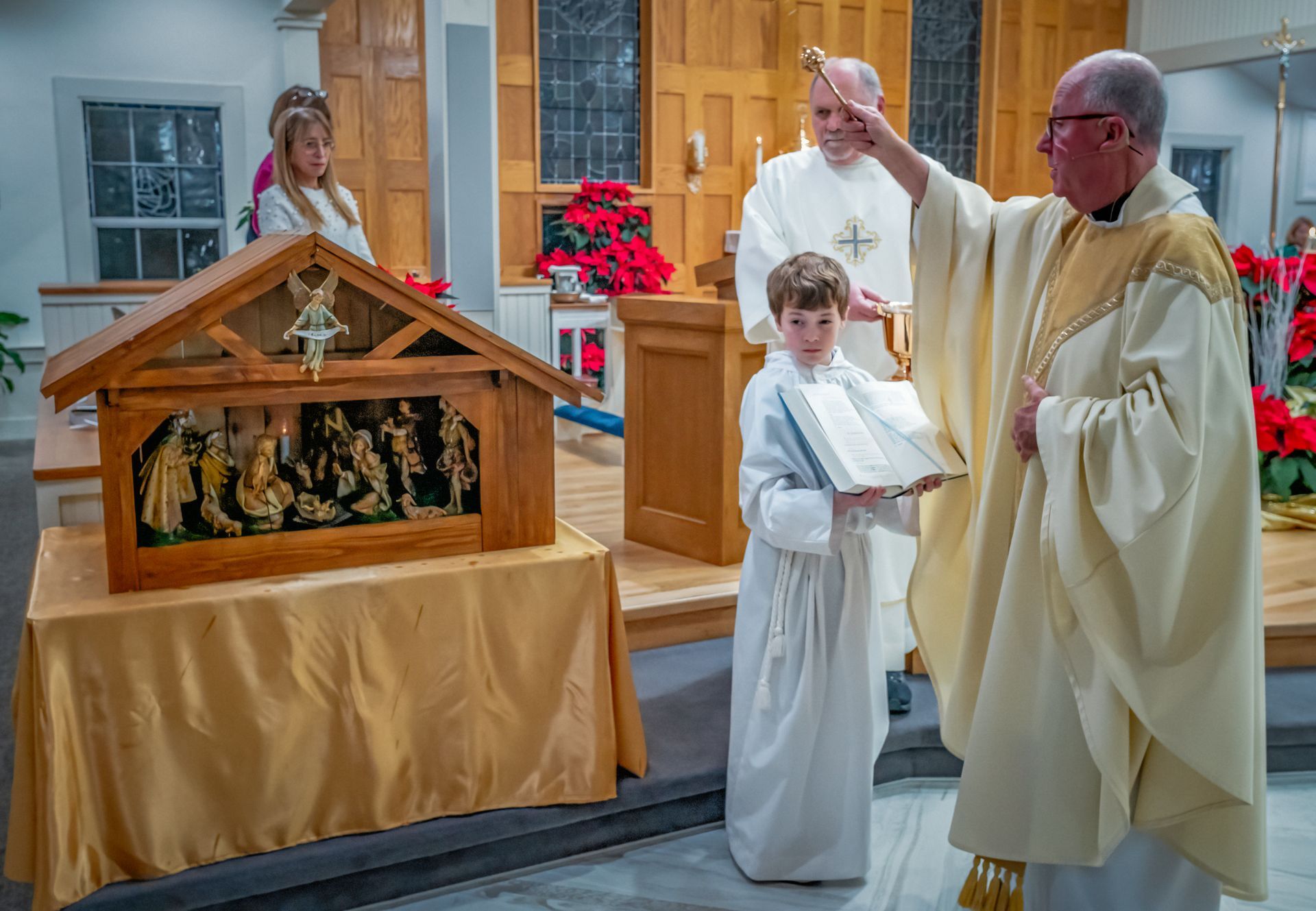25th Sunday of Ordinary Time Homily
25th Sunday of Ordinary Time Homily- Fr. John Sullivan
Wow, I didn’t see that coming! All of us live with expectations. We have them for all facets of our lives. Expectations are the lens through which we view our lives and the world around us. When our expectations aren’t satisfied were are troubled and upset.
Expectations have many types. Some are simple. I greet you warmly and I expect you to return a greeting. Others are a practical necessity. I come to an intersection where others have a stop sign. I expect them to yield to me as I drive through. Others we hold in our heart. If we love someone, we expect them to love us back.
We use expectations to evaluate others. We asses people according to how they fit our expectations. Our anticipation of a relationship with others depends on past experiences and preconceived notions of what their character should be like. If we meet them at church, we expect they are at least struggling to be a good person. The people we meet develop expectations of us in a similar way. Sometimes expectations are realistic and sometimes they aren’t.
When people or circumstances are not meeting our expectations, we become annoyed, upset, and angry. When our expectations are challenged, we begin to think about them a great deal. Since often many of our expectations have never been fully expressed, when they aren’t met, we are thrown into turmoil.
Today’s Gospel Parable seems to be a strange one, but it is about expectations. It is difficult to understand because Jesus violates our expectations. Jesus seems to be praising a rogue steward. Someone concentrating on their self-interest.
The steward in the story wasn’t living up to expectations. He has been reported for squandering the master’s property, so the master tells him he is being fired. The steward recognizes his predicament. If he loses his job, life will become very difficult for him. He comes up with a plan. He will forgive some of the debts owed to his master. That way the debtors will show appreciation to him but also to his master. Since the debtors are yet unaware of the steward’s predicament, they will feel gratitude to him and also his master for their leniency. Now, the steward has put the master in a bind. Since the steward’s generosity towards the debtors has brought the master honor and gratitude from the debtors, the master must show his steward appreciation because the steward has added to the masters honor among the debtors.
Jesus was seen as a rogue steward by many of the religious authorities of his day. He wasn’t living up to their expectations of what the Messiah should be like. They felt Jesus was dissipating God’s authority by being too generous with forgiveness.
Most people of Jesus’ day felt heavily burdened because they were unable to be totally faithful to the Mosaic Law. It’s over six hundred precepts made it difficult, even impossible for the average person to strictly follow the law. Only people like the scribes and Pharisees, who were often wealthier, could remain ritually pure. Therefore, most of the faithful were considered sinners and not welcome to worship in the Temple because they weren’t ritually pure enough.
The religious authorities felt Jesus was a rouge steward because he was telling sinners he came to offer forgiveness of the debt of sin they owed to God. By healing the sick, the blind, the lepers, and those possessed by demons, whose afflictions were often considered punishment for sin, the religious authorities felt Jesus was dissipating God’s majesty. The religious authorities were suspicious of Jesus because they felt he was preaching leniency. They expected a Messiah to preach a conservative and strict interpretation of the Law. They looked for a Messiah to preach a punishing and not a merciful God. This caused turmoil because Jesus wasn’t fulfilling their expectations. They felt annoyed, anger, and frustration with him.
Jesus taught that rather than being a rogue steward his preaching was increasing God’s honor and glory and making God loved by those who received mercy and forgiveness of their sinfulness. Jesus claimed that he was sent from God not to punish sinners as the religious authorities expected, but to lighten their load, and offer mercy and forgiveness to all who love God. In today’s parable Jesus asserts this is pleasing to God because it increases God’s honor and glory.
That is still good news for us today. We need to reconsider our expectations of God and hear God wants to lighten our load and not add to it. God want us to hear anew Jesus’ message and forget any expectations God is out to punish us. We must begin to believe God is liberal with compassion and wants us to experience mercy and forgiveness.
Sadly, many of us are like the religious authorities of Jesus’ day, our expectation is that God wants to punish us for our sinfulness. We imagine a God who wants to hold our sinfulness against us rather than glory in offering us compassion and love. We find it hard to recognize that it is through forgiveness that God builds up glory and honor.
As Catholics we luckily celebrate the Sacrament of Reconciliation. It is the sacrament where we experience not only God reducing the debt of our sin but eliminating it completely. When we receive absolution in the Reconciliation Room, God wipes our souls clean of sin. God is so generous because God knows actions of love increase God’s glory and majesty among the faithful. If you have not gone to confession in a long time, set aside your expectations and overcome your fears to receive God’s pardon and forgiveness. The Reconciliation Room is at the back of the church on your right as you enter the doors.
At the present time, our nation is very polarized. Labels and categorizations are battered about that shade our expectations of each other. They cause us to fear, denigrate, and separate us. Today Jesus teaches us that God shatters all expectations that limit God’s love for all of us. Don’t let unrealistic expectations cause you to underestimate God’s love for you and all our brothers and sisters.






